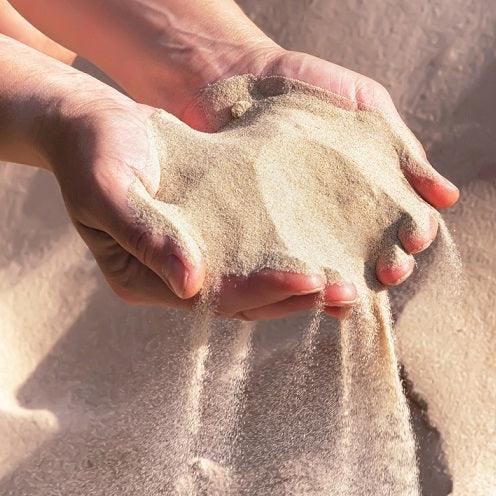
Vaginal Dryness: Signs, Symptoms, and More
Vaginal dryness is one of the most common complaints I hear every day. So, what is vaginal atrophy or vaginal dryness? This condition not only leads to a variety of symptoms, but can also impact a woman's intimate experiences, especially vaginal dryness during sex.
Common Causes of Vaginal Dryness
Vaginal dryness can be caused by various factors, including:
Hormonal changes
- Postpartum period - Hormonal fluctuations after childbirth
- Perimenopause or menopause - During these hormonal changes, low estrogen levels lead to thinning of the tissue and a decrease in vaginal secretions.
- Vaginal microflora changes - Alterations in acidity and microflora, increasing the risk of vaginal infection which make the symptoms of dryness even worse.
Medications
- Oral contraceptives - Can reduce natural lubrication.
- Cancer treatments - Hormone-blocking therapies that decrease estrogen levels.
- Long-term antihistamine use - may also contribute to vaginal dryness.
Certain health conditions
- Sjorgen's syndrome - can lead to inflammation of glands throughout the body including the vagina therefore leading to less production of secretions and contributing to vaginal atrophy.
Lifestyle choices
- Smoking - which can affect blood flow to your vaginal tissue
- Excessive alcohol consumption - leading to dehydration, can both affect your vaginal lubrication and arousal during any sexual activity.
Mental Health
- Stress and anxiety - Mental health issues can negatively affect physical arousal, leading to symptoms like vaginal itching.
- Relationship issues - may contribute to vaginal dryness given that your physical arousal is linked to your mental health. If your mental health isn't ideal, you may not get the physical response you're looking for during sexual activity.
Impact on Intimacy
In regards to intimacy, vaginal dryness can affect sexual pleasure and intimacy, leading to discomfort or painful intercourse. These symptoms may also lead to you wanting to avoid intimacy which can possibly lead to frustration and emotional consequences for yourself and your partner. Your vaginal dryness doesn't need to be a symptom that you have to live with. Discuss your vaginal dryness symptoms with your physician or healthcare provider to effectively address the issue. Let your partner know what you are experiencing and maintain open lines of communication so they understand what is happening and can support you through this time.
What Does Vaginal Dryness Feel Like?
Understanding what vaginal dryness feels like is important for recognizing the symptoms and seeking appropriate care. The experience can vary from person to person, but common sensations include:
- Burning or Stinging Sensation - A feeling of irritation or discomfort, particularly during or after sexual activity.
- Itching - Persistent vaginal itching that may lead to discomfort throughout the day or night.
- Painful Intercourse - Painful intercourse (dyspareunia) often described as a sharp or aching pain during sexual intercourse.
- Dryness - A noticeable lack of moisture or lubrication, especially during sexual activity.
- Tightness - A feeling of tightness or reduced flexibility in the vaginal area, making penetration more difficult.
- Soreness - General soreness or tenderness in the vaginal region, which may persist even after intimacy.
- Discomfort with Tampons - Increased difficulty or discomfort when using tampons, often due to the lack of natural lubrication.
- Vaginal Discharge Changes - A reduction in normal vaginal discharge, leading to an overall sense of dryness.
If you’re experiencing any of these symptoms, it’s important to consult with your healthcare provider to determine the underlying cause and explore appropriate treatment options.
Solutions for Vaginal Dryness
Thankfully, there are solutions for vaginal dryness.
Over the counter options
- Lubricants and moisturizers - Provide relief during intimacy.
- Boric Acid Moisturizing Gel - Products like pH-D Feminine Health’s Boric Acid Moisturizing Gel. It has a combination of hyaluronic acid, Vitamin E, and coconut oil which can help retain moisture in the tissue.
Prescription medications
- Vaginal estrogen therapy - restores normal vaginal pH, restoration of healthy microflora, thickens the tissue, and increases vaginal secretions. It can even improve sexual response.
Natural remedies and lifestyle changes
- Maintaining proper hydration
- Balanced diet
- Minimizing alcohol consumption
- Avoiding smoking
When to Seek Medical Advice
Vaginal dryness again is common but not normal. You don't have to live with this symptom and should seek advice if you are experiencing vaginal dryness including pain with intercourse, bleeding with intercourse, abnormal vaginal discharge, or anything that is different from your normal. Your physician or healthcare provider will do a history and physical to determine what is the cause of your vaginal dryness symptoms and give you treatment options, which could include lifestyle changes, hormonal therapy, or even a menopause supplement tailored to your specific needs.
In conclusion, understanding the causes of vaginal dryness during sex is crucial for finding effective solutions and improving sexual health. This blog has covered the various physical and psychological factors that contribute to this condition and offered a range of treatments and remedies. By addressing both the symptoms and underlying causes, readers can enhance their comfort and intimacy. Remember, seeking medical advice when necessary and maintaining open communication with partners are key steps in managing vaginal dryness and achieving a fulfilling sex life.






